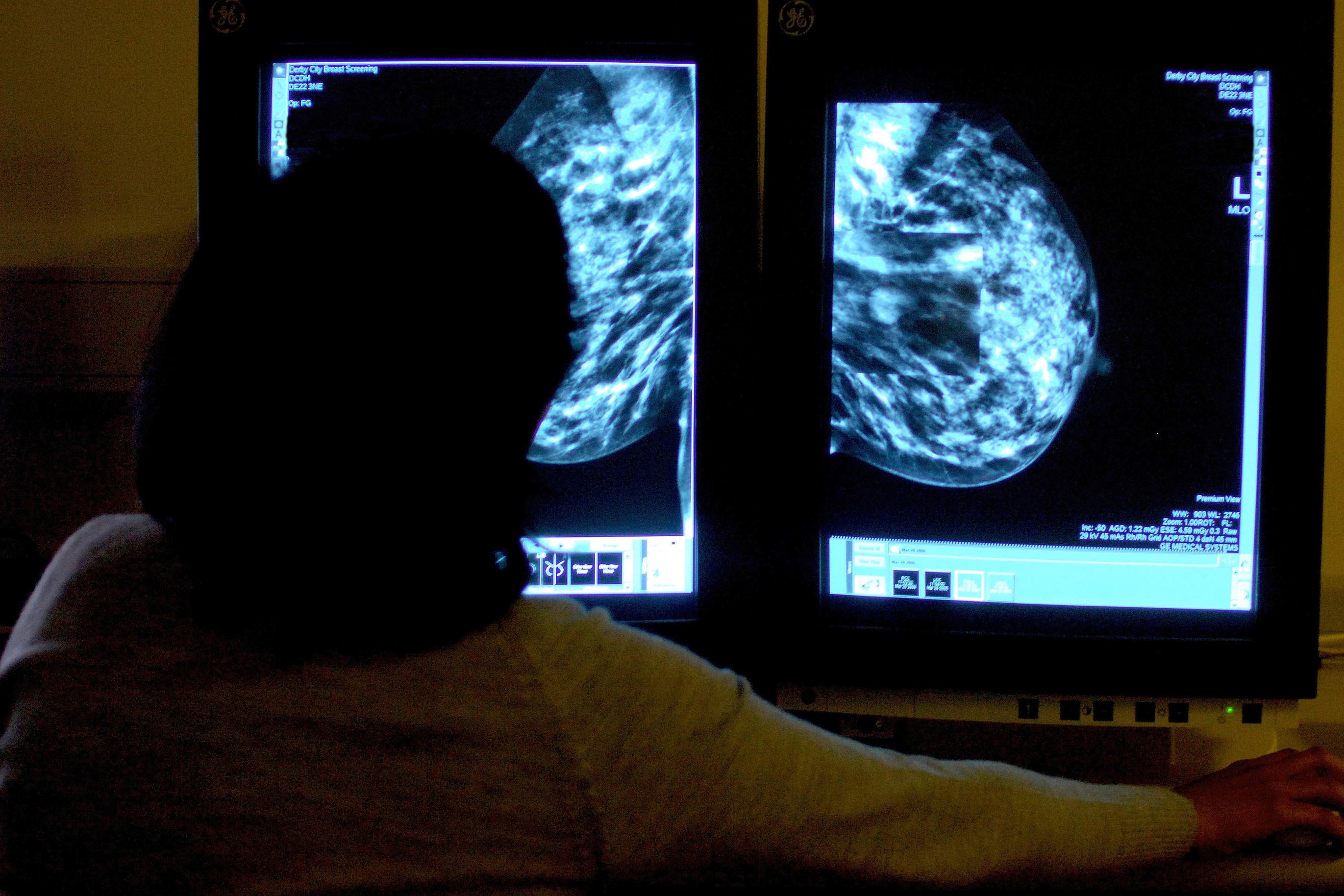Major scientific breakthrough could stop breast cancer returning
Research funded by Breast Cancer Now reveals how secondary breast cancer forms and how it might be prevented

Your support helps us to tell the story
From reproductive rights to climate change to Big Tech, The Independent is on the ground when the story is developing. Whether it's investigating the financials of Elon Musk's pro-Trump PAC or producing our latest documentary, 'The A Word', which shines a light on the American women fighting for reproductive rights, we know how important it is to parse out the facts from the messaging.
At such a critical moment in US history, we need reporters on the ground. Your donation allows us to keep sending journalists to speak to both sides of the story.
The Independent is trusted by Americans across the entire political spectrum. And unlike many other quality news outlets, we choose not to lock Americans out of our reporting and analysis with paywalls. We believe quality journalism should be available to everyone, paid for by those who can afford it.
Your support makes all the difference.Scientists have come up with a strategy that could prevent breast cancer from returning in another part of a patient’s body years or decades later.
In what experts have described as a “time bomb”, patients with the most common type of breast cancer – oestrogen receptor positive (ER+) – have a continued risk of their cancer recurring and forming incurable tumours, as secondary or metastatic breast cancer.
Now, research funded by Breast Cancer Now and published in the journal Nature Cancer has revealed how this process happens in the lungs via molecular changes that occur during ageing.
According to the findings, if a protein which is present in the lungs – the PDGF-C protein – increases, which is more likely to happen during ageing, it can cause dormant cancer cells to grow and develop into secondary breast cancer.
Working with mice with ER+ tumours, researchers targeted the protein with an existing drug called imatinib to see if it would impact cancer growth.
The mice were treated with the drug both before and after the tumours had developed. According to the study, for both groups, the cancer growth in the lung was significantly reduced.
Dr Frances Turrell, postdoctoral training fellow in the Division of Breast Cancer Research at The Institute of Cancer Research, London, (ICR) said: “We’ve discovered how ageing lung tissue can trigger these cancer cells to ‘reawaken’ and develop into tumours and uncovered a potential strategy to ‘defuse’ these ‘time bombs’.
“We now plan to better unpick how patients might benefit from the existing drug imatinib and, in the long term, aim to create more specific treatments targeted at the ‘reawakening’ mechanism.”
Dr Simon Vincent, director of research, support and influencing at Breast Cancer Now, added: “This exciting discovery brings us a step closer to understanding how we can slow down or stop the development of ER+ secondary breast cancer in the lung.
“It has the potential to benefit thousands of women living with this ‘time bomb’ in the future, ensuring fewer patients receive the devastating news the disease has spread.”
Up to 80 per cent of primary breast cancers are ER+ and they make up some 44,000 cases in the UK each year.
Rachel Davies, 38, who lives in Swansea, was diagnosed with ER+ breast cancer in 2021 and underwent a mastectomy, lymph node removal, chemotherapy and radiotherapy.
Following a scan in May 2022, three months after finishing treatment, she was told the cancer had spread to her sternum and later her spine, and she is now receiving a targeted cancer drug called ribociclib and hormone therapy.
Mrs Davies said: “I’ve seen some women finish treatment and ring that bell and celebrate it being over, and this always worries me as you can never be complacent that it won’t return.
“Finding out the cancer had spread when I thought it was all in the past was heartbreaking.
“That’s why it’s so important that research into secondary breast cancer happens so we can find new ways to stop women going through what I’m experiencing.”
She added: “Research like this gives me hope for women being treated for breast cancer in the future. I don’t want to waste my precious time being bitter or angry.”



Join our commenting forum
Join thought-provoking conversations, follow other Independent readers and see their replies
Comments